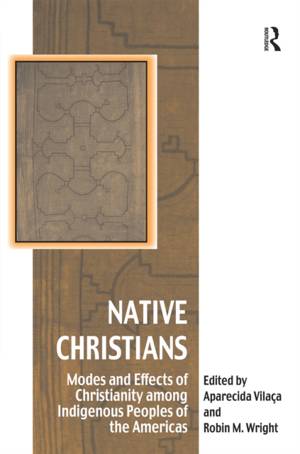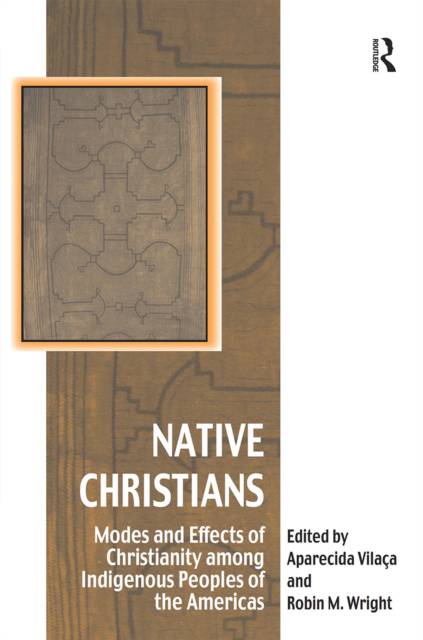
- Afhalen na 1 uur in een winkel met voorraad
- Gratis thuislevering in België vanaf € 30
- Ruim aanbod met 7 miljoen producten
- Afhalen na 1 uur in een winkel met voorraad
- Gratis thuislevering in België vanaf € 30
- Ruim aanbod met 7 miljoen producten
Zoeken
Native Christians
Modes and Effects of Christianity among Indigenous Peoples of the Americas
Aparecida Vilaça
€ 54,45
+ 108 punten
Uitvoering
Omschrijving
Native Christians reflects on the modes and effects of Christianity among indigenous peoples of the Americas drawing on comparative analysis of ethnographic and historical cases. Christianity in this region has been part of the process of conquest and domination, through the association usually made between civilizing and converting. While Catholic missions have emphasized the 'civilizing' process, teaching the Indians the skills which they were expected to exercise within the context of a new societal model, the Protestants have centered their work on promoting a deep internal change, or 'conversion', based on the recognition of God's existence. Various ethnologists and scholars of indigenous societies have focused their interest on understanding the nature of the transformations produced by the adoption of Christianity. The contributors in this volume take native thought as the starting point, looking at the need to relativize these transformations. Each author examines different ethnographic cases throughout the Americas, both historical and contemporary, enabling the reader to understand the indigenous points of view in the processes of adoption and transformation of new practices, objects, ideas and values.
Specificaties
Betrokkenen
- Auteur(s):
- Uitgeverij:
Inhoud
- Aantal bladzijden:
- 266
- Taal:
- Engels
- Reeks:
Eigenschappen
- Productcode (EAN):
- 9781032243412
- Verschijningsdatum:
- 13/12/2021
- Uitvoering:
- Paperback
- Formaat:
- Trade paperback (VS)
- Afmetingen:
- 156 mm x 233 mm
- Gewicht:
- 370 g

Alleen bij Standaard Boekhandel
+ 108 punten op je klantenkaart van Standaard Boekhandel
Beoordelingen
We publiceren alleen reviews die voldoen aan de voorwaarden voor reviews. Bekijk onze voorwaarden voor reviews.











